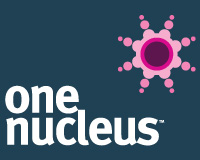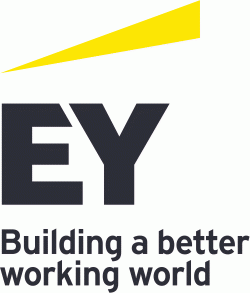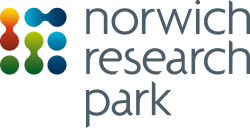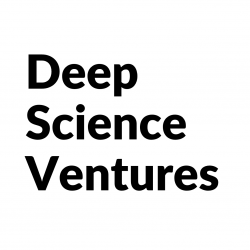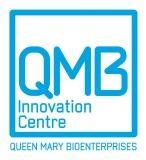Over 80 guests from across the biotech industry came to Stevenage Bioscience Catalyst to enjoy talks and networking with female leaders in celebration of International Women’s Day 2024 with the theme of ‘Inspire Inclusion.’
Dr Sally Ann Forsyth OBE, CEO of SBC, Dr Anji Miller, Tech Transfer Pro, EDI & STEM Advocate and LifeArc Board Member, Dr Rabia Khan, CEO and Founder of Serna Bio and Dr Mary Kerr, CEO of Nerre Therapeutics and Co-Founder of KaNDy Therapeutics took to the lectern at SBC to share their career journeys, challenges they have overcome, and what has led them to where they are today.
Dr Sally Ann Forsyth OBE welcomed attendees with an opening talk on statistics from SBC which showed 50% of the board are female, and since 2018, the Campus has been led by a female CEO and female Chair.
The audience were given an insight into Dr Forsyth’s own expansive career which began in academia, as a molecular biologist, at both Edinburgh and Cambridge University. This preceded a series of senior executive positions held at Unilever, and directorship roles at science parks across the Golden Triangle; Unilever Colworth, Harwell Oxford (where Dr Forsyth was the first Director), Norwich Science Park and Stevenage Bioscience Catalyst. The audience heard about lesser-known aspects of Dr Forsyth’s life, including experiences living and working in Kenya, qualifying as Chartered Global Management Accountant, working in venture capital as one of few women, followed by accounts of motherhood, and managing a career with two sons. When asked by the audience on the secret to combining a successful career with parenthood, Dr Forsyth said:
“Find a childcare system that you can trust. Be organised and have a plan in terms of times and routines. Businesses are more supportive and aware of parents’ needs today. Times have changed in the modern world, and planning childcare arrangements affects both men as well as women.”
Dr Forsyth concluded her talk by discussing the importance of working with a cohesive team:
“Surround yourself with good people who are tenacious and driven towards the same goal. It’s important to have shared passion for what you do so that it is enjoyable. In turn, support your team by being generous with your time to help them grow and see that they are valued.”
Dr Anji Miller then took to the lectern to discuss her breadth of experiences across the life sciences industry, ranging from academic research in cancer genetics at Imperial College London, to acquiring a master’s degree in Intellectual Property law through to working in technology transfer for 20 years. Dr Miller has held a series of leadership roles at LifeArc and within the technology transfer community. However, Dr Miller referenced her work as an equality, diversity, and inclusion (EDI) and science, technology, engineering and maths (STEM) advocate as one of her most rewarding experiences to date:
“For me, the ability to assist the development of promising science is a powerful driver. I am a fierce STEM and EDI advocate, and the challenges I have faced have driven my ambition and enhanced my resilience. The importance of empowering others shouldn’t be underestimated, a simple positive comment can go a long way.
I like to encourage those around me to embrace their authentic selves and shine in their uniqueness. If people feel accepted, it gives them the confidence needed to learn new skills and take on new challenges. Don’t be afraid to break the mould and to be the CEO of your own life.”
Both Dr Rabia Khan, CEO and Founder of Serna.Bio, and Dr Mary Kerr, CEO of Nerre Therapeutics and Co-Founder of KaNDy Therapeutics, are leaders of SBC-based businesses.
Dr Rabia Khan discussed her experience as an immigrant moving from Pakistan to Canada and then to the UK. She credits these experiences for equipping her with a resilience and adaptability which have proved invaluable as a sole founder.
“Both attributes are vital to achieving success, alongside the humility to keep learning. It’s also very important to find a mentor or manager who empowers you."
"Mentors are trailblazers for future generations," she added before crediting the extraordinary role Dr Jackie Hunter, SBC’s Chair, and the CEO at BenevolentAI, had played in her career.
Dr Khan’s business, Serna Bio, uses an AI-enabled, data-first approach to write the rules that define RNA-small molecule interactions. Serna Bio’s drug discovery platform is first-in-class to use small molecule programs targeted at classically undruggable proteins and non-coding RNA targets, targeting both human and non-human biology.
Tackling novel biology and complex "undruggable" targets is a steep challenge and Dr. Khan highlights how "Curiosity and continuous learning are essential in science. It is important to acknowledge the gaps in our biological knowledge and be receptive to learning with new tools available to us such as AI.”
Dr Mary Kerr described herself as a Big Pharma ‘veteran’ working for ViiV Healthcare and GSK for twenty-seven years before moving to Biotech. On leaving GSK, Dr Kerr joined Advent Life Sciences (ALS) as an Operating Partner and assumed the role of CEO for NeRRe Therapeutics, an ALS Portfolio company. In 2017, Dr Kerr co-founded KaNDy Therapeutics with Dr Mike Trower (also Co-Founder of NeRRe). NeRRe and KaNDy both resided at SBC. Bayer acquired KaNDy Therapeutics in in 2020 for an upfront value of $475m as well as possible Regulatory and Commercial milestone resulting in a potential deal value of > $1billion. In January this year, Bayer announced positive Phase 3 results of the ex-KaNDy compound to treat symptoms of the menopause. KaNDy Therapeutics is the first SBC-based business to have achieved positive Phase 3 pivotal results. Dr Kerr said:
“The ex-KaNDy compound, now owned by Bayer, has great promise. If approved, it would be the first in a new class of dual mechanism non-hormonal treatments for the menopause. This would be an enormous milestone in the treatment of the menopause.”
Dr Kerr, who sits on the BioInnovation Institute’s Women’s Health Innovation Panel, expanded:
“Women’s health has been chronically under-funded for decades. The recent McKinsey report concluded that closing the gender health gap could reduce the time women spend in poor health by almost two-thirds and add up to US$1tn to the global economy by 2040.”
The IWD talks were then opened to the audience where thought-provoking questions led to discussions on topics such as techbio investors in the current landscape, raising money for startups in the US/Europe vs UK and accessibility of new therapies for people in need. The event concluded with a networking lunch enjoyed by all attendees and speakers.
